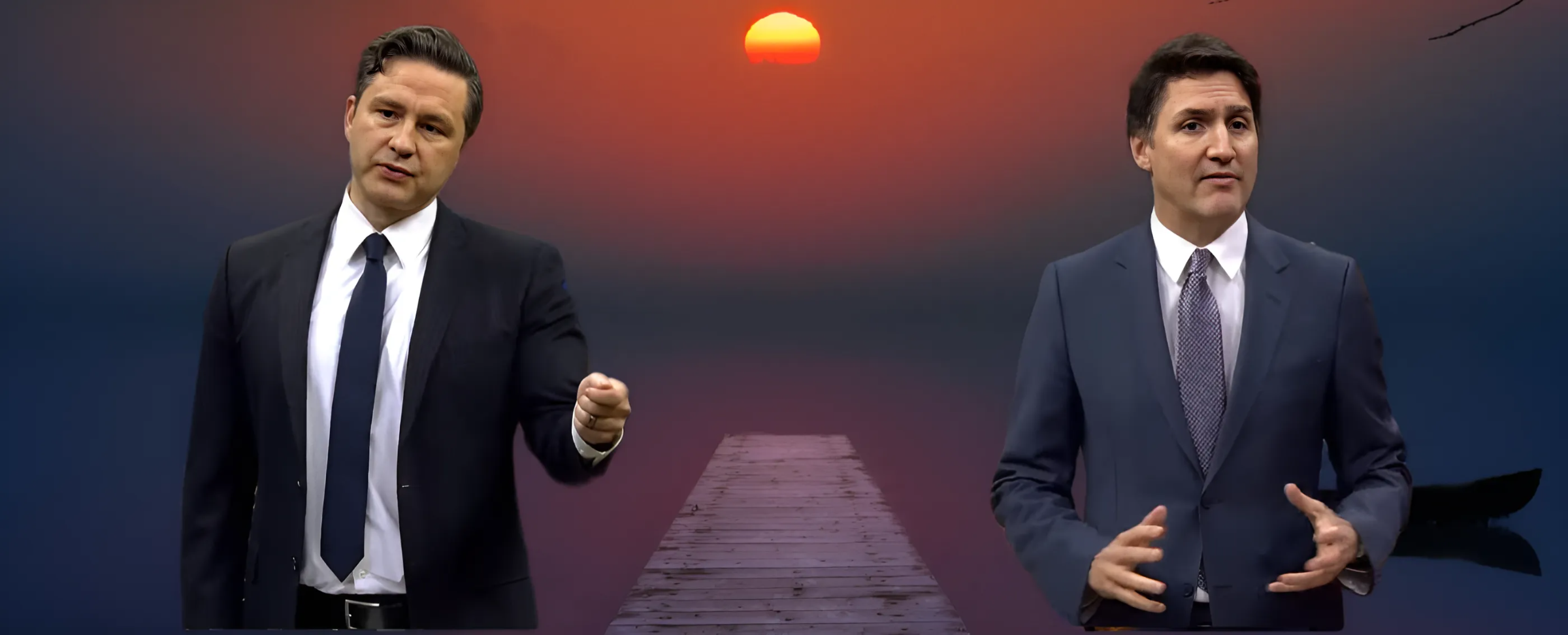Today, Conservative Leader Pierre Poilievre and Prime Minister Justin Trudeau engaged in a heated debate in the House of Commons over the government’s proposal to increase Canada’s capital gains inclusion rate.
“Nine years ago, the Prime Minister promised he could spend uncontrollably and there’d be a rich guy on a hill somewhere who would pay the bill; the middle class wouldn’t have to pay,” Poilievre said. He accused Trudeau of failing to deliver on his promises, citing that the total net worth of the richest Canadians had doubled since Trudeau took office, while nine out of ten middle-class Canadians were paying more taxes. “Housing costs have doubled, 76% of middle-class youth believe they’ll never afford a home, and two million people line up at a food bank because they can’t afford to eat on a middle-class salary,” Poilievre added. He questioned why Canadians should believe Trudeau’s promises this time around.
In response, Trudeau defended his government’s policies, arguing that the proposed increase in the capital gains inclusion rate would benefit Canadians. “If it didn’t have real-world impacts on Canadians, it would almost be amusing to watch the Conservative leader tie himself in knots to try and justify voting in favor of advantages for wealthy Canadians when they sell really profitable investments,” Trudeau said. He emphasized that asking the wealthy to pay a bit more would enable the government to invest more in housing for young people and other essential services. “We’re delivering dental care for over 200,000 seniors in just the last six weeks, more spaces in childcare, and stepping up for Canadians,” Trudeau stated.
Poilievre fired back, accusing Trudeau of misleading Canadians. “Real-world impacts—that’s what we have today after nine years of this Prime Minister promising to tax, borrow, and spend us into fairness,” Poilievre said. He argued that the taxes introduced by Trudeau’s government had disproportionately impacted the middle class. “The vast majority of Canadians are paying higher taxes, including 100% of the middle class paying higher carbon taxes, and his last round of small business tax hikes hit plumbers and electricians, not the rich,” Poilievre said. He questioned why the middle class always ends up poorer whenever Trudeau mentions them.
Trudeau rebutted by highlighting the benefits of the carbon rebate and urging members of the House to support the proposed changes. “Our price on pollution delivers more money to eight out of ten Canadians with the Canada carbon rebate,” Trudeau said. He called on the House to ask the wealthiest Canadians to pay a bit more when they sell extremely profitable investments. “We are doing that on this side of the House, while the Conservatives are protecting advantages for the wealthiest Canadians,” Trudeau argued. He reiterated his commitment to investing in housing, dental care, and other supports for Canadians in need.
Poilievre continued his criticism, focusing on the impact of the proposed tax changes on small businesses. “If you are a small business owner and have even $1 of investment gain, you pay this higher tax that the Prime Minister is promising because there’s no exemption inside the 300,000 small businesses,” Poilievre said. He expressed incredulity that Trudeau would propose such a tax during a housing shortage, healthcare crisis, and economic downturn. “During a healthcare shortage, he wants to tax away our doctors; during a food price crisis, he wants to tax our farmers; and while our economy is shrinking more than any other in the G7, he wants to tax our small business job creators,” Poilievre asserted. He concluded by calling the proposal “the definition of insanity.”
Trudeau closed the debate by accusing the Conservatives of avoiding the issue for months. “For eight weeks since we put our budget forward, the Conservatives have been incredibly careful not to say a thing about the capital gains rate that we’re raising,” Trudeau said. He argued that the Conservatives were now choosing to vote with the wealthiest Canadians and against young Canadians, seniors, and the middle class. “The reality is they have an opportunity to vote with middle-class Canadians, and they’re choosing to vote against them,” Trudeau stated.
The proposed changes would require well-off Canadians to pay tax on two-thirds of their capital gains, instead of just one-half, beginning on June 25. The government argues that many of the wealthiest Canadians make most of their money through investments rather than income, resulting in a lower marginal tax rate compared to workers such as nurses or plumbers.
The changes have already sparked significant concern from various sectors, particularly from the medical community. The Canadian Medical Association (CMA) has voiced strong opposition, arguing that the tax hike would disproportionately affect physicians who operate through medical corporations. Unlike personal taxes, corporate taxes do not offer a $250,000 exemption on capital gains, meaning doctors will face increased taxes on their investments. This, according to the CMA, could put access to healthcare at risk as it may discourage physicians from continuing their practices, particularly in family medicine where financial pressures are already high.
The debate highlighted the stark contrast between the two leaders’ visions for Canada’s economic future. Poilievre framed the proposed tax changes as harmful to small businesses and the middle class, while Trudeau defended them as necessary steps to ensure fairness and fund essential services. As the House prepares to vote on the proposal, the outcome will have significant implications for the country’s fiscal policy and the economic well-being of Canadians.

